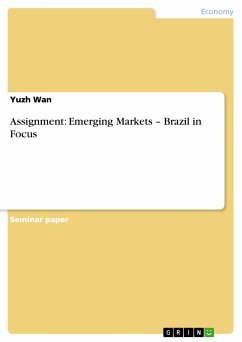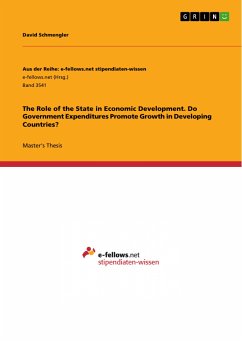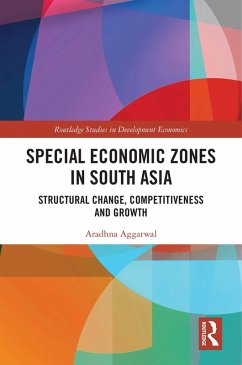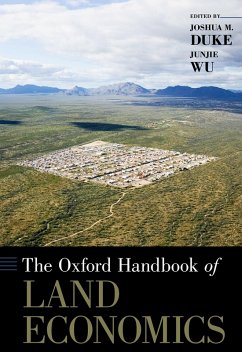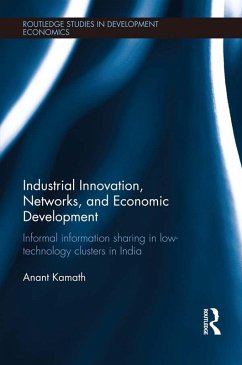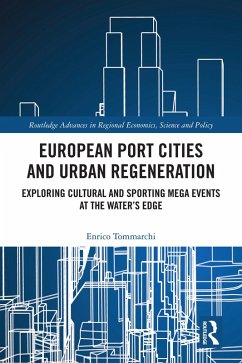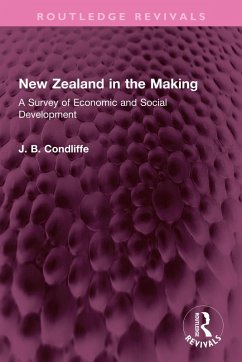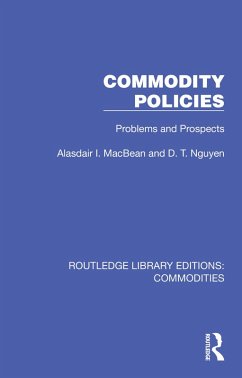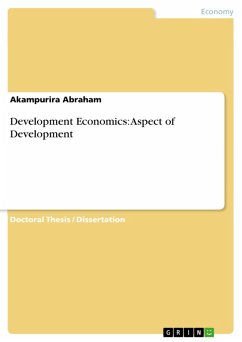
Development Economics: Aspect of Development (eBook, PDF)
Versandkostenfrei!
Sofort per Download lieferbar
44,99 €
inkl. MwSt.
Weitere Ausgaben:

PAYBACK Punkte
0 °P sammeln!
Doctoral Thesis / Dissertation from the year 2013 in the subject Economics - Economic Cycle and Growth, grade: 4.0, ( Atlantic International University ) (BUSINESS STUDIES AND ECONOMICS), course: Development Studies, language: English, abstract: Development economics entail all the aspects of the development process especially meant for the developing countries to overcome the challenges that impede development. This can be through education, education and man power development, restructuring market incentives, incorporating favorable social and political approaches and practices among other f...
Doctoral Thesis / Dissertation from the year 2013 in the subject Economics - Economic Cycle and Growth, grade: 4.0, ( Atlantic International University ) (BUSINESS STUDIES AND ECONOMICS), course: Development Studies, language: English, abstract: Development economics entail all the aspects of the development process especially meant for the developing countries to overcome the challenges that impede development. This can be through education, education and man power development, restructuring market incentives, incorporating favorable social and political approaches and practices among other factors. Human beings however need streamlined social and economic systems that are able to achieve development through major changes in social structures, national institutions, cultures and attitudes as well as eradication of poverty, reduction of income inequality and acceleration of economic growth. The developing world needs a multi disciplinary approach and ideas so as to come out of the economic backward situation. Micheal, P. (2003: 9) describes that because of heterogeneity of the developing world, and the complexity of the development process, development economics must be eclectic, attempting to combine relevant concepts and theories from traditional economics analysis along with new models and broader multi disciplinary approaches from historical and co temporally development experience of Africa, Asia, and Latin America. Debraj Ray (2007) puts it that development economics studies economics of the developing world and has made excellent use of economic theory, econometrics, anthropology, sociology, political science, biology and demography. It needs a lot more dimensional approach to understand it. Other scholars have tried to bring about the key issues that are in development economics such as Dasgupa (1998), Hoff, Braverman and stiglitz (1993), Ray (1998), Bardhan and Udry (1999), Mookerjee and Ray (2001), and Sen(1999).[...]
Dieser Download kann aus rechtlichen Gründen nur mit Rechnungsadresse in A, B, BG, CY, CZ, D, DK, EW, E, FIN, F, GR, HR, H, IRL, I, LT, L, LR, M, NL, PL, P, R, S, SLO, SK ausgeliefert werden.




